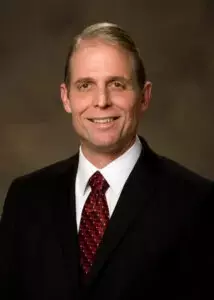Iowa kids may soon see cigarette-style warnings on social media sites

Safeguarding Youth Mental Health: The Call for Social Media Warning Labels
As the U.S. surgeon general urges Congress to mandate warning labels on social media, mental health professionals in Iowa are echoing the call, citing a growing body of research that links excessive social media use to increased rates of depression and anxiety among teenagers. This article delves into the issue, exploring the potential impact of such a policy and the role of parental influence in shaping young people's digital habits.Empowering Families to Navigate the Digital Landscape
Uncovering the Troubling Trends
According to Jeff Reiland, a child and family therapist with Gundersen Health System, the problem of excessive social media use among teenagers has been steadily worsening. Reiland cites a wealth of studies that confirm the detrimental impact of prolonged social media exposure on young people's well-being, with those spending more than three hours a day on these platforms being twice as likely to experience symptoms of depression.Reiland's observations echo the growing concerns among parents, school leaders, and mental health professionals about the profound influence social media is having on America's youth. Teenagers, on average, devote approximately five hours each day to social media, a significant portion of their waking hours. This immersion in the digital realm is a contributing factor to the rising rates of anxiety and depression among this demographic.
Exploring the Potential of Warning Labels
While a warning label on social media may not single-handedly solve the problem, Reiland believes it could be a meaningful first step in raising public awareness and prompting a shift in mindsets. Drawing parallels to the implementation of warning labels on tobacco products and alcohol, Reiland suggests that such a measure could help people recognize the gravity of the issue and the potential risks associated with excessive social media use.Reiland emphasizes that the goal of warning labels is not to demonize social media entirely, as he acknowledges the valuable role it played in connecting young people during the pandemic. Rather, the aim is to empower families with the knowledge and tools to navigate the digital landscape more mindfully, fostering a healthier relationship between teenagers and their screens.
The Pivotal Role of Parental Influence
Reiland underscores the significant influence that parents have on their children's social media habits. He notes that when parents themselves are heavily engaged with social media, their teenagers are more likely to follow suit. As the primary role models in a child's life, parents' own screen time and digital behaviors can have a profound impact on the choices and patterns their children adopt.Recognizing the power of parental example, Reiland emphasizes the importance of parents taking a proactive approach in managing their own social media use and setting healthy boundaries for their families. By modeling responsible digital habits, parents can help their children develop a more balanced and mindful relationship with technology, ultimately safeguarding their mental well-being.
Addressing the Complexities of Social Media's Impact
While the concerns surrounding the mental health implications of social media use are well-founded, Reiland acknowledges the nuances and complexities involved. He notes that not all social media interactions are inherently harmful, and that the platform can serve as a valuable tool for connection, learning, and self-expression when used in moderation.Reiland's perspective underscores the need for a balanced and multifaceted approach to addressing the challenges posed by social media. By empowering families with the knowledge and resources to navigate the digital landscape, while also fostering open dialogues and promoting healthy digital habits, mental health professionals and policymakers can work together to mitigate the risks and harness the potential of social media for the benefit of young people.